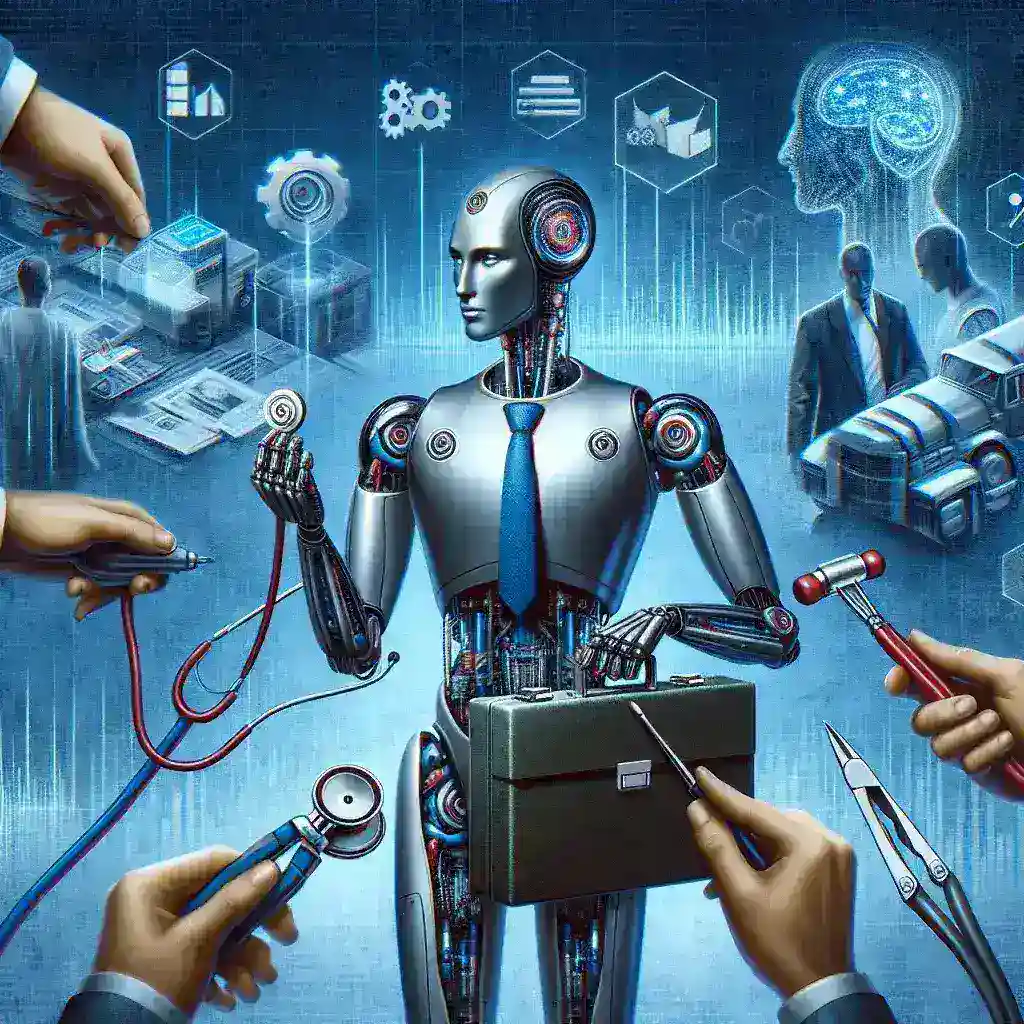The Impact of AI on Job Automation
Artificial Intelligence (AI) has been a buzzword for many years, but its real-world applications are becoming increasingly significant, particularly in the realm of job automation. This advanced technology is reshaping industries, enhancing efficiency, and raising critical questions about the future of work.
Introduction to AI and Job Automation
AI encompasses a variety of technologies, including machine learning, natural language processing, and robotics, all designed to simulate human intelligence. Job automation involves employing these technologies to perform tasks traditionally done by humans, ranging from simple administrative duties to complex analytical processes. The synergy between AI and job automation is transforming modern business practices, but what does this mean for the workforce?
Benefits of AI in Job Automation
- Increased Efficiency: AI-powered automation can perform repetitive tasks faster and with higher accuracy than humans, significantly boosting productivity.
- Cost Savings: Automated systems can reduce operational costs by minimizing the need for manual labor and reducing human errors.
- Enhanced Analytics: AI can process vast amounts of data to provide insightful analytics, aiding in better decision-making
- 24/7 Operation: AI systems can operate continuously without the need for breaks, ensuring uninterrupted productivity.
Challenges of AI in Job Automation
- Job Displacement: One of the most significant concerns is the potential loss of jobs as machines replace human workers in various roles.
- Skill Gap: As AI technologies evolve, there is a growing need for workers to acquire new skills to stay relevant in the job market.
- Security Risks: Increased reliance on automated systems may expose businesses to cyber threats and data breaches.
- Ethical Considerations: The deployment of AI raises ethical questions about privacy, surveillance, and the potential for biased decision-making.
Industries Most Affected by AI Automation
| Industry | Impact of AI Automation |
|---|---|
| Manufacturing | Robotics and AI are being used to automate production lines, leading to faster production and lower costs. |
| Healthcare | AI is revolutionizing diagnostics, patient care, and administrative processes, improving outcomes and efficiency. |
| Finance | AI algorithms are used for fraud detection, risk management, and customer service automation. |
| Retail | From inventory management to personalized shopping experiences, AI is enhancing retail operations. |
| Transportation | Self-driving vehicles and AI-based logistics are transforming the transportation industry. |
| Agriculture | AI is being used for crop monitoring, soil analysis, and predictive maintenance of farming equipment. |
The Future of Work with AI Automation
The integration of AI in job automation is poised to reshape the future of work. While there are concerns about job displacement, it’s essential to recognize that new job opportunities will emerge, requiring a different set of skills. Workers will need to focus on roles that emphasize creativity, critical thinking, and emotional intelligence—skills that machines are yet to master.
Furthermore, businesses and educational institutions must collaborate to provide training programs that equip workers with the necessary skills for the evolving job market. Governments should also play a role by implementing policies that support workforce transition and protect workers’ rights.
The Role of Human-AI Collaboration
Rather than viewing AI as a threat, it’s more productive to see it as a tool that can augment human capabilities. AI can handle mundane and repetitive tasks, freeing humans to focus on more complex and strategic initiatives. This collaboration can lead to increased innovation and a more dynamic workplace.
Reskilling and Upskilling Initiatives
To prepare for the future, reskilling and upskilling initiatives are crucial. These programs should emphasize the development of digital literacy, problem-solving abilities, and adaptability. Companies should invest in their employees’ growth by offering continuous learning opportunities and fostering a culture of lifelong learning.
Embracing Ethical AI Deployment
As AI technology becomes more pervasive, it’s critical to develop ethical guidelines for its deployment. Ensuring transparency, accountability, and fairness in AI systems can mitigate potential biases and build public trust. Stakeholders across industries must work together to establish standards and best practices for ethical AI use.
Conclusion
The impact of AI on job automation is profound and multifaceted. While it presents challenges, it also offers numerous opportunities for growth and innovation. By embracing AI technology, fostering collaboration, and prioritizing ethical deployment, we can navigate the future of work in a way that benefits both businesses and the workforce.
Ultimately, the key to leveraging AI effectively lies in our ability to adapt and evolve. Continuous learning, ethical considerations, and human-AI collaboration will pave the way for a more productive, innovative, and inclusive future.

